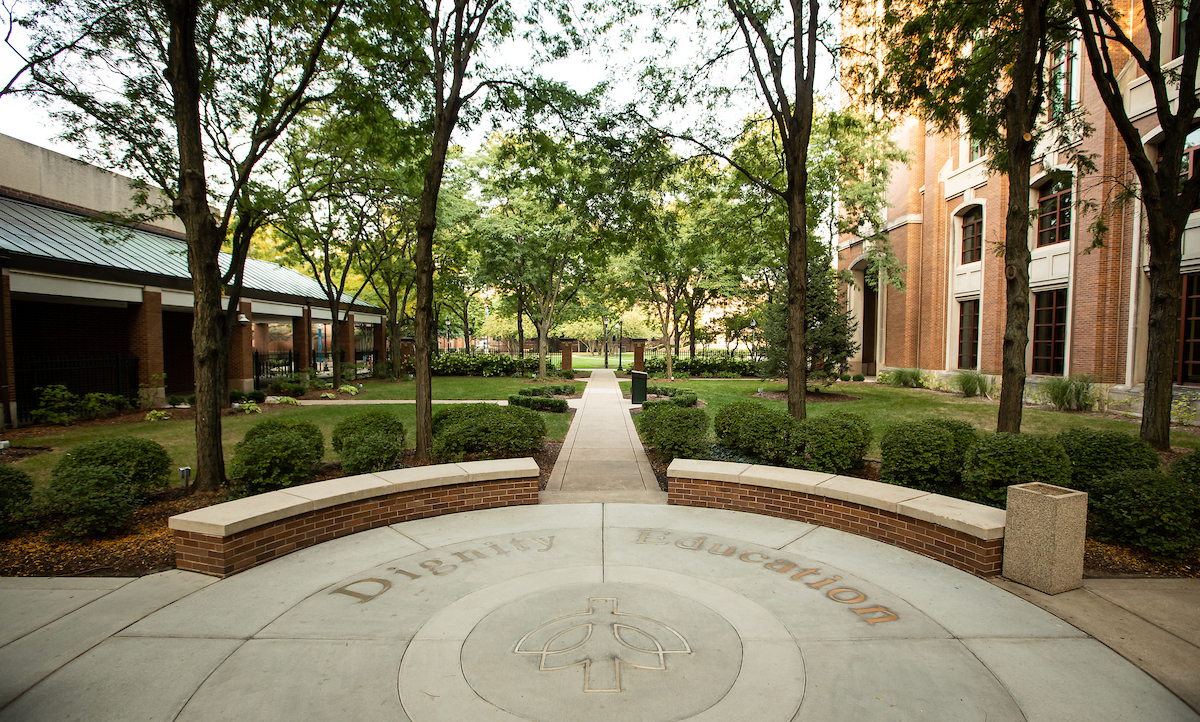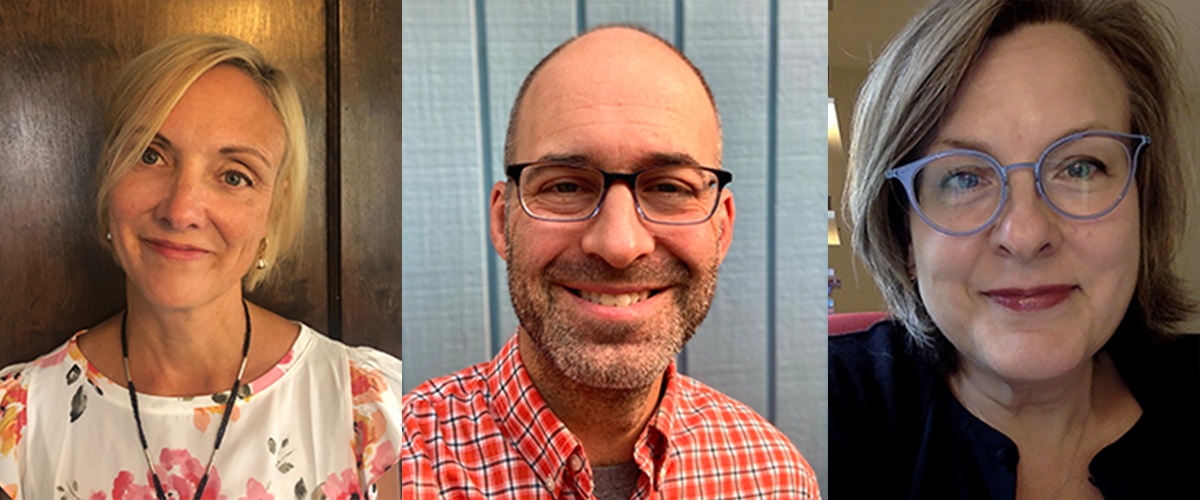 (DePaul University/Jeff Carrion)
(DePaul University/Jeff Carrion)DePaul University has received a $285,000, three-year grant from the Teagle Foundation in support of a multi-section civics course, “Lived Civics, the Social Contract & Public Life." The course builds on a $25,000 planning grant received from the Teagle Foundation in 2020, which allowed a DePaul research team to conduct focus groups, research curricular ideas and pilot modules of the curriculum in a variety of courses, resulting in the multi-disciplinary course.
Leading the project are Molly Andolina and Ben Epstein, associate professors in the Department of Political Science, along with Margaret Storey, a professor of history and associate dean in the College of Liberal Arts and Social Sciences.  Molly Andolina, Ben Epstein and Margaret Storey are DePaul faculty leading a project funded by the Teagle Foundation.
Molly Andolina, Ben Epstein and Margaret Storey are DePaul faculty leading a project funded by the Teagle Foundation.
“We are living in a remarkable time in the history of American democracy," Andolina says. “More than any point in recent generations, we are witnessing extreme polarization and public displays of animosity, incivility and violence. Our curriculum aims to provide the groundwork for grappling with the contentious and significant issues that lie at the heart of our contemporary civic culture and democratic life."
The team will recruit faculty from across the university to participate in summer professional development training and support them throughout the academic year with ongoing resources. The program will train and support 55-60 faculty members over the span of three cohorts.
“Our project is unique in that it aims to bring a place-based approach to students' understanding of their role in civic life," Epstein says. “The 'Lived Civics' approach provides a lens through which students can reflect on their daily experiences as civic experiences and allows them to engage with others whose civic identities have had very different influences."
Andolina emphasizes the focus groups with faculty illustrated how many instructors are working on issues of civics, particularly in terms of the social contract, broadly conceived, in classrooms and in a wide variety of departments and units.
“From this, we designed the course to tap into the strength of DePaul faculty who engage students in civics issues by combining a common, shared curriculum with a plethora of individualized, discipline-specific sections," she explains. “An art historian might include an analysis of public art. Someone who teaches public finance might want to explore issues of housing assistance. A geographer could focus on red-lining."
The initiative builds on DePaul's nearly 125-year history as an urban, community-engaged, Vincentian university. It also aims to serve as an intellectual bridge between two experiential components of the core requirements of the university's Liberal Studies Program: the Chicago Quarter and the Experiential Learning requirements.
“The ultimate goal of the project is to establish an interdisciplinary community of scholars dedicated to civics education at DePaul," Storey says. "We hope to build essential civic skills, historical knowledge and democratic dispositions among students while modeling a sustainable civics curriculum for institutions across the nation. We see this as the foundation of a larger commitment to civics education that will grow in the years to come."
The effort kicks off this summer with a summer institute for faculty interested in developing their own iterations of the course. All full-time faculty are eligible to apply for the program, which will provide financial support for their time. The application window will close on April 18. No prior experience in civics education is necessary.
David Ben-Arie is the associate director of foundation relations in the Division of Advancement and External Relations.